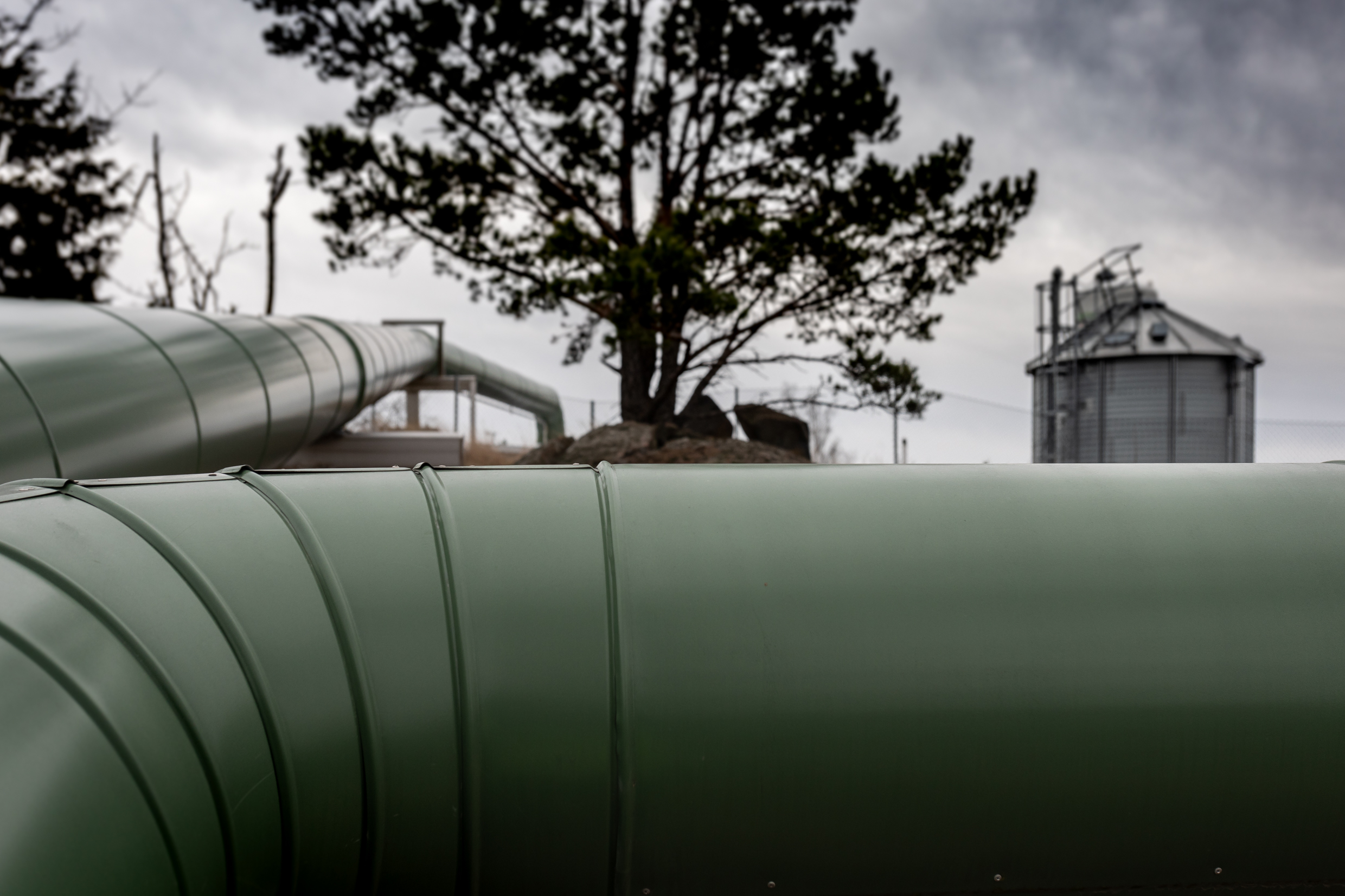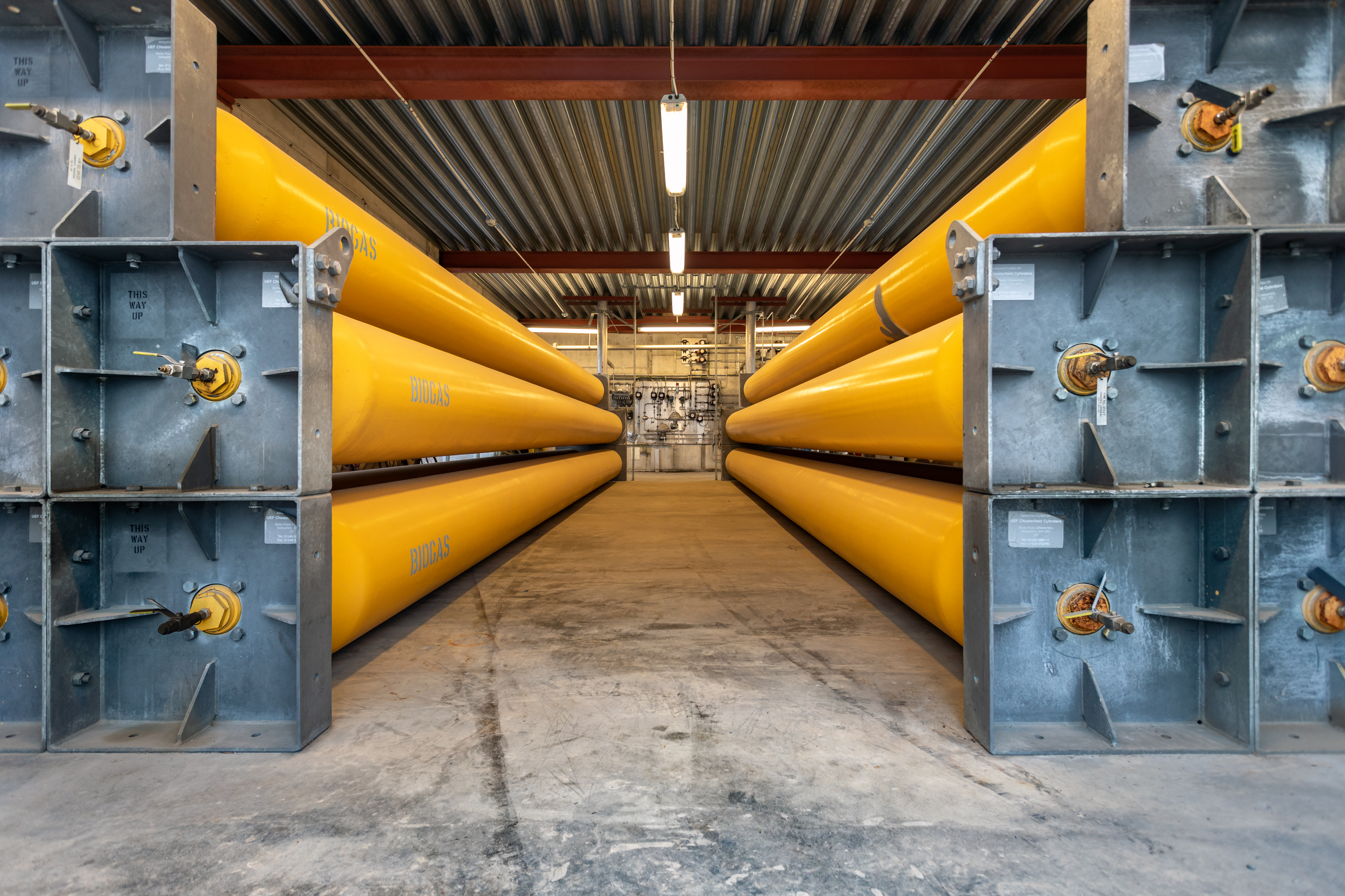Biogas promotes a circular and sustainable society
Biogas is a renewable alternative to fossil gas
Biogas is positively aligned with many environmental and societal goals, such as clean urban air and a closed-loop system. This makes biogas unique. Research indicates that the broader the systems perspective and the more life cycle stages included in the analysis, the better biogas performs regarding its climate impact compared to other alternatives. The same holds for the overall environmental and societal benefits of biogas – the more environmental aspects and societal benefits considered in the analysis, the clearer it becomes that no other fuel provides as significant environmental and societal advantages as biogas.
Industrially, biogas production often occurs in large digesters where an active bacterial flora decomposes the organic material and converts it into raw gas. At the same time, bio-fertilizer is also formed, which can be used directly as a substitute for liquid fertilizer or refined into bio-wool and bio-lace.
Liquid biogas - high in energy, fossil-free, and provides minimal emissions

Long range with liquid biogas
Liquid biogas has a high energy content per unit volume, making it suitable for heavy-duty road transportation, shipping, and other industries that require energy independence from well-established infrastructure. In other words, liquid biogas is a sustainable alternative to fossil gas or diesel.
Liquid biogas is a raw gas that has been upgraded to approximately 97% methane and then cooled to -162 degrees, transforming it into liquid biogas.
Our strategy is to increase deliveries of liquid biogas and meet a growing market.
The number of gas-powered trucks is increasing
More and more heavy-duty vehicles are being powered by alternative fuels such as liquid biogas, and the interest in gas-powered trucks is growing in several European countries, including long-haul transportation. Volvo, Scania, MAN, and Iveco are making significant investments in developing efficient and sustainable fuel solutions.
For instance, Euro 6 gas engines are now practically as efficient as diesel engines. In addition, other players in the transportation chain, such as large haulage companies and distributors, have decided to operate their trucks on gas in Europe. This development has a positive impact on the vehicle gas infrastructure, even in the Nordic countries, as freight transportation generally occurs across national borders. Renewable alternatives like biogas are also favored due to increased requirements for reduced carbon dioxide emissions.
Compressed biogas is best suited for public transportation and heating

Compressed biogas is raw biogas that has been purified to have a methane content of 97 percent. It can be fed into the gas network or used as vehicle fuel.
The gas is produced by recycling food waste or sewage sludge from local treatment plants. The gas is distributed locally via a gas network or in specially built gas tanks containing gas tubes.
Compressed gas is best suited for local use as transport costs per unit of energy do not justify longer transports.
Contact us
Sohrab Moshiri
Head of Sales
Contact Sohrab Moshiri

